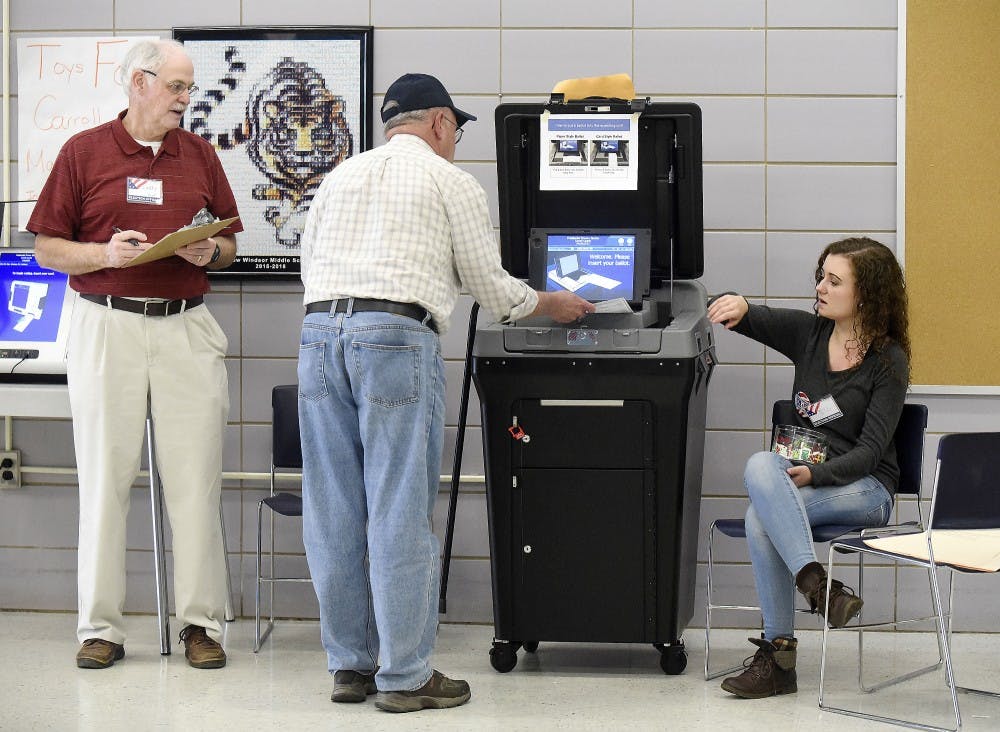The impending presidential election will be the first election in more than five decades that voters will not be under the full protection of the Voting Rights Act of 1965 — an act which was passed during the Civil Rights Era to protect minority voters.
The act was a major piece of legislation which aimed to protect disenfranchised voters, namely Black voters from suppression. It was a landmark piece of legislation which was in full-effect up until 2013 when it was stripped of certain powers by the U.S. Supreme Court.
The VRA was to supplement the 15th Amendment, which guaranteed the right to vote to any person, regardless of color or race.
Here’s what the 2013 decision could mean for this election:
Supreme Court Decision
In the 2013 Supreme Court case Shelby V. Holder, the court decided on whether Section 4 of the Voting Rights Act was constitutional. Section 4 laid out a set of jurisdictions that decided whether or not a state should be required to submit voting legislation to the Department of Justice for approval.
It was struck down 5-4, and Chief Justice John G. Roberts Jr. outlined the court's logic in the majority opinion.
“Our country has changed,” he said in the opinion. “And while any racial discrimination in voting is too much, Congress must ensure that the legislation it passes to remedy that problem speaks to current conditions.”
Many civil rights leaders decried the decision as a major blow to civil rights. The debate continues to this day.
Rev. William Barber testified at a Phoenix Democratic National Convention Committee platform drafting committee to outline what he said was the importance of the VRA.
Read more: Phoenix DNC hearing showcases environmental reform, universal healthcare
“Today, because of the actions of five supreme court justices and Republican congressional leadership that has refused to do its job, the march of history has regressed,” Barber said at the DNCC. “Much of the ink has been erased, and the U.S Attorney General has less power today to enforce voting rights and voting protection than the attorney general had Aug. 7 1965, the day after the voting rights act was signed.”
Barber was among one of many to urge voter protection as a part of the Democratic platform.
Effects in Arizona
Arizona was one of nine states under the jurisdiction of the DOJ when the decision was made. As soon as it was brought out of this jurisdiction it was able to make laws at will without submitting them.
Steve Kilar, the communications director for Arizona’s American Civil Liberties Union said the VRA has an important history in Arizona.
“The Voting Rights Act blocked 18 discriminatory voting laws in the state of Arizona from 1982 to 2006,” Kilar said. “During every redistricting cycle from 1980 to 2000, at least one of Arizona’s statewide redistricting plans was blocked by the VRA, for discriminatorily breaking up Latino communities in order to minimize the influence of Latino voters.”
Although these changes are significant, Kilar said the VRA is not fully powerless.
“It’s important to note that the Supreme Court didn’t invalidate the whole VRA,” he said. “The states just don’t have to go to the DOJ before implementing any voting changes.”
Kilar said the formula which was stricken out in 2013 needs to be replaced.
“In Congress there have been proposals to replace the formula — good proposals, but they have not been passed yet,” he said. “It can still be resurrected, and in the opinion of the ACLU, it should.”
Kilar said the problem is keeping the voting officials accountable.
“Having no federal review leaves the public alone to serve as a watchdog for any voting changes and making sure they are keeping tabs on election officials, so eligible voters aren’t shut out of the process,” he said. “It’s really almost an impossible task, given how election decisions are made.”
Arizona’s March primary debacle is an example of what happens as a result — as well as what could happen in the future, Kilar said.
Read more: Arizona House Committee investigates what went wrong during presidential preference elections
“The Arizona Primary was a horrifying example of what happens when these voting changes are not being reviewed,” he said. “Had those polling place changes been proposed under the time of the VRA they would have been reviewed by an outside entity other than the Maricopa County Recorders Office.”
Organizations, such as the Arizona Advocacy Network, work with voters to try to ensure voter protection and rights.
Jennifer Wendel, an intern for the Network, said that states previously under the jurisdiction of the DOJ could have just gotten out of the Section 4 reviews by keeping voting laws in check.
“If you read the VRA, it states that if you don’t do anything wrong for 10 years, then you are stricken off,” Wendel said. “There’s never been a state that has been stricken off.”
Laurie Cestnick is a founding member of Occupy DNC. She said she blames the 2013 VRA decision, as well as what she called a system of corruption, for the issues with the presidential preference election in March. These issues start with the federal government and trickle down to the state level, she said.
“What civilized country doesn’t allow the federal government to oversee their elections?” Cestnick asked. “It definitely started problems for lots of states in this election.”
Correction: Due to a reporting error, a previous version of this story misquoted Steve Kilar. This version has been updated with the correct information.
Reach the reporter at isaac.windes@asu.edu or follow @isaacwindeschef on Twitter.
Like The State Press on Facebook and follow @statepress on Twitter.




